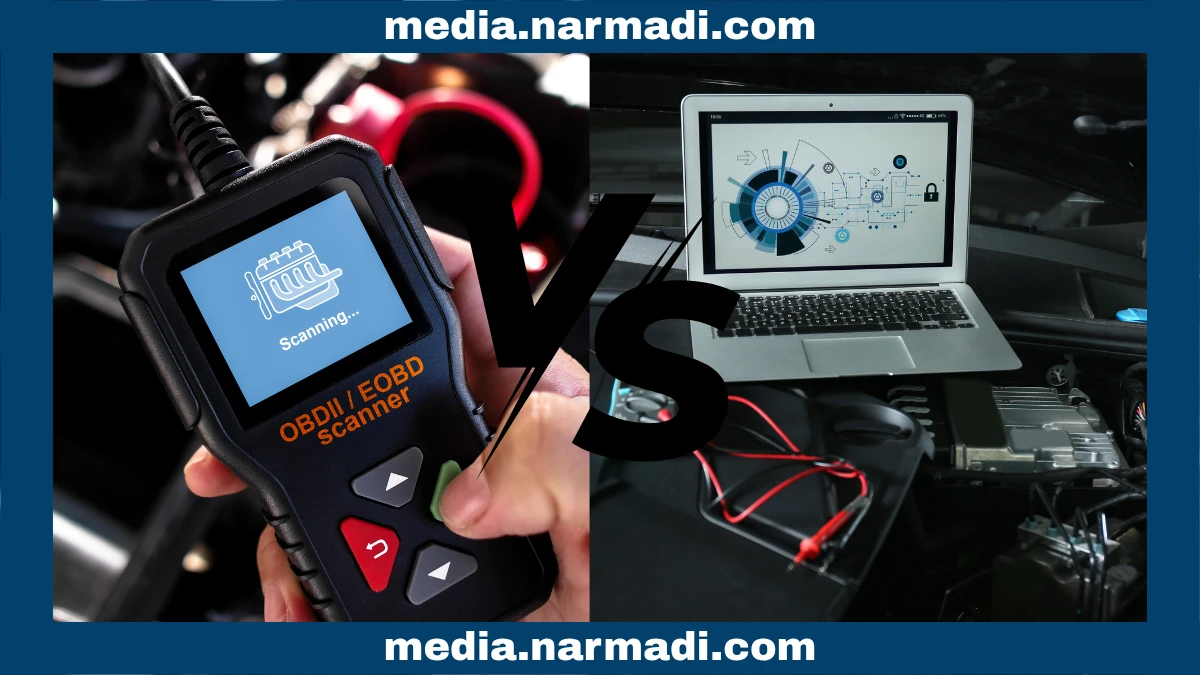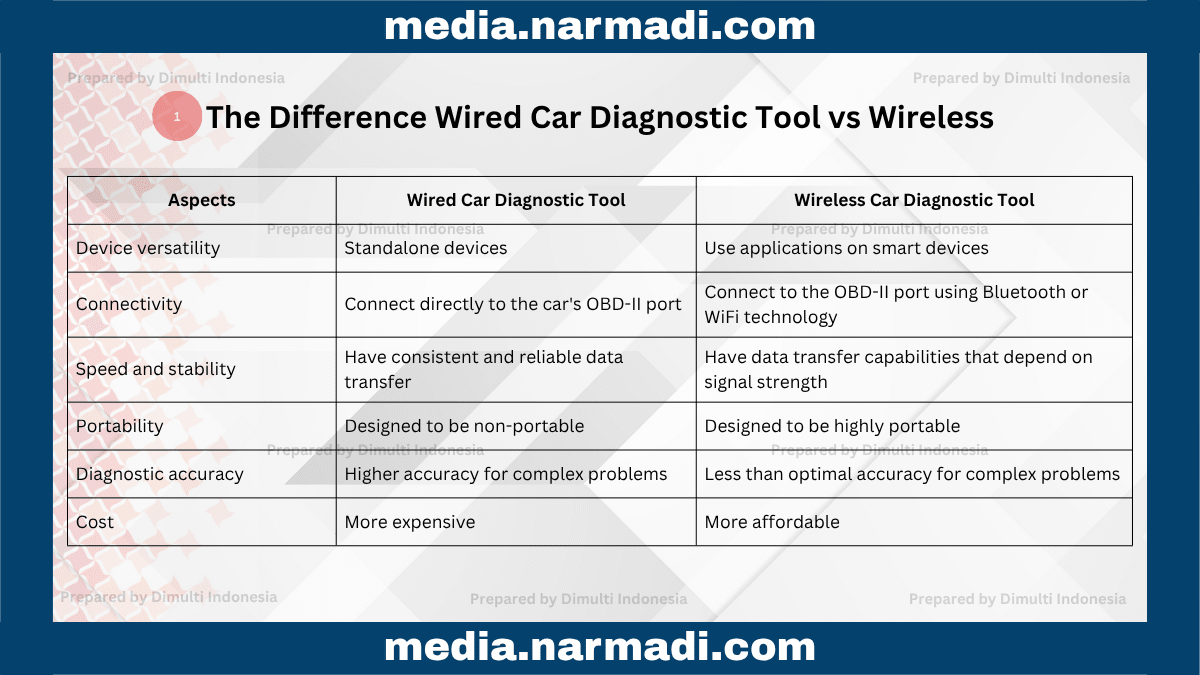Wired and wireless car diagnostic tools are devices designed to identify vehicle conditions. Although both are devices that allow you to find out what's wrong with your car, they have some significant differences.
The differences between wired car diagnostic tools vs wireless include device versatility, connectivity, speed and stability, portability, and diagnostic accuracy.
This article will explore the key differences between wired car diagnostic tools vs wireless to find out what's wrong with your car.
What is a Wired Car Diagnostic Tool?

A wired car diagnostic tool is an automotive diagnostic device that needs to be connected directly to the On-Board Diagnostics (OBD-II) port on a car using a cable. Wired devices have a stable connection, do not require an external battery, and have a fast response time.
Wired diagnostic tools are often used for more complex vehicle condition analysis. However, these tools have limitations in terms of mobility and practicality because they are restricted by the cable connecting the diagnostic tool to the OBD-II port.
What is a Wireless Car Diagnostic Tool?

A wireless car diagnostic tool is an automotive diagnostic device that uses Bluetooth or WiFi technology to connect to the OBD-II port. This tool allows remote control via other devices such as smartphones, tablets, or computers.
Wireless diagnostic tools are often only used for basic analysis, such as diagnostic trouble codes (DTC). For more complex condition analysis, the accuracy may not be precise. Connectivity also depends on Bluetooth and WiFi connections, so it may be disrupted or disconnected during use.
The Differences Between Wired Car Diagnostic Tools vs Wireless

Wired car diagnostic tools vs wireless are devices designed to identify vehicle conditions. Here are the differences between the tools:
Device versatility
Wired car diagnostic tools: Standalone devices with screens and buttons that cannot be connected to other devices.
Wireless car diagnostic tools: Use applications on smart devices, such as phones or tablets, as the display interface.
Connectivity
Wired car diagnostic tools: Connect directly to the car's OBD-II port using a physical cable.
Wireless car diagnostic tools: Connect to a module plugged into the OBD-II port using Bluetooth or WiFi technology, allowing access via a phone, tablet, or computer.
Speed and stability
Wired car diagnostic tools: Have consistent and reliable data transfer capabilities without signal interference, suitable for complex diagnostics and software updates.
Wireless car diagnostic tools: Have data transfer capabilities that depend on signal strength, allowing for interference or even disconnection.
Portability
Wired car diagnostic tools: Designed to be non-portable for use close to the vehicle due to cable limitations.
Wireless car diagnostic tools: Designed to be highly portable, allowing for unlimited remote use without cables.
Diagnostic accuracy
Wired car diagnostic tools: Have higher accuracy for complex problems due to more stable data transfer.
Wireless car diagnostic tools: May have less than optimal accuracy for complex problems, more suitable for minor problems.
Cost
Wired car diagnostic tools: More expensive due to their advanced capabilities, especially for car diagnostic tool professionals.
Wireless car diagnostic tools: More affordable and widely available on the market.
That’s the difference between wired car diagnostic tools vs wireless that you can consider when choosing according to your personal needs.
If you need a tool for accurate vehicle diagnostics for complex checks, a wired car diagnostic tool is a good choice. However, if you need a device for basic checks that can be controlled remotely, you can choose a wireless car diagnostic tool.